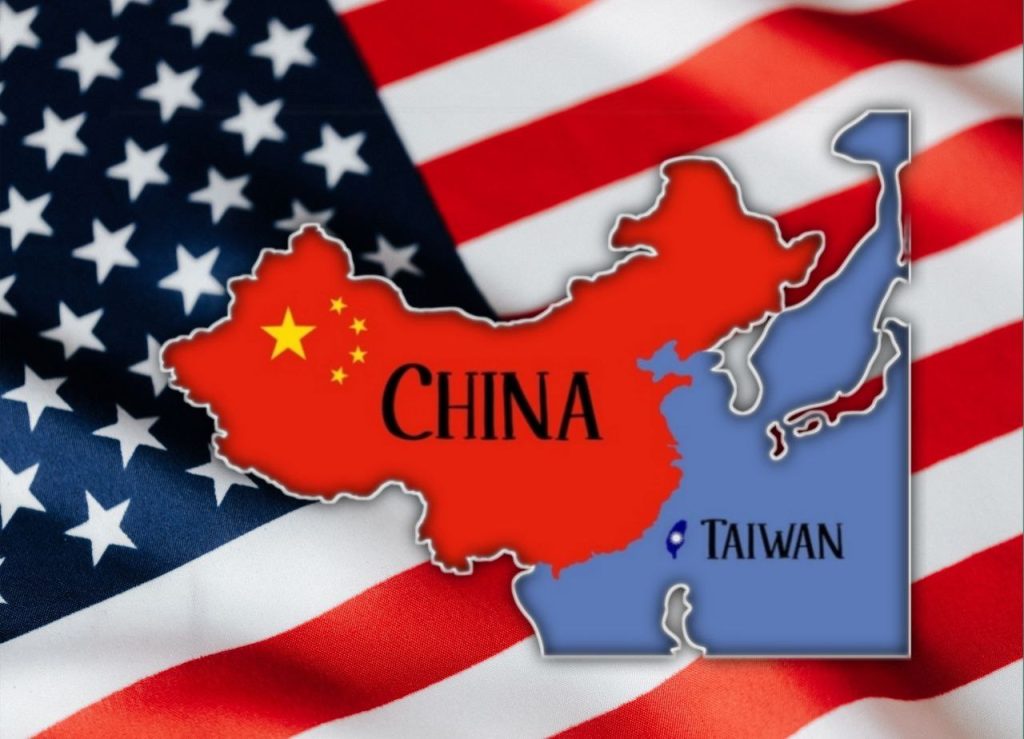The recent visit by US Speaker Nancy Pelosi to Taiwan isn’t being well taken by China. This sparked intensive stress between the two strong countries China and US as China sees Taiwan as a breakaway fiefdom.
Taiwan, which considers itself an independent nation, has long been claimed by China, which considers Taiwan to be its breakaway fiefdom. Yet Taiwan also counts the US as its biggest supporter, and Washington has a law that requires it to help Taiwan in defending itself.
Ever since Russia’s incursion on Ukraine, tensions in the Taiwan Strait have been increasing. The lines of communication used to reduce tension have broken down. China, Taiwan, and the United States, the three key participants, each feels they are acting sensibly to safeguard their interests in the face of escalating moves from the other side of the Strait. Instead of predicting whether a war will occur, policymakers and experts are increasingly competing to predict when one might happen.
One of the few concerns that could lead to a war between the United States and China is Taiwan. Considering the stakes, it is imperative for American officials to go back to the basics when analyzing the situation, comprehending the country’s crucial interests, and determining the focal point of developments in the Taiwan Strait.
Whether Taiwanese citizens can continue to have faith in their future will determine Taiwan’s future. The Taiwanese people need to have trust in order to maintain their sovereignty and democratic way of life until peaceful, non-coercive solutions to the cross-Strait conflict arise rather than accepting fatalistic assumptions that resistance is useless. The PRC has ramped up its operation of coercion to erode Taiwanese citizens’ faith in the island’s future democratic way of life. In order to continue its long-standing interest in maintaining peace and stability in the Taiwan Strait, the United States must openly support efforts to give Taiwan the opportunity to live in pride, safety, and prosperity while also maintaining a respectable defense around Taiwan.

Policymakers in the United States must also make their policies and public messaging toward Taiwan more coherent once again. It will be crucial for constant guiding principles to inform American policy, one of which is that Taiwan should be supported for its own reason and not as a means of undermining China. Washington can be helpful in reducing tensions, but Taipei and Beijing will eventually be responsible for settling disputes across the Taiwan Strait.
Over the last week, Taiwan’s security has garnered a lot of attention from the international media. The lessons China may be learning from Russia’s military failures in Ukraine have been a topic of discussion among experts. Analysts got excited when President Joe Biden said in Tokyo that the United States might engage militarily if Taiwan was invaded. However, under this frothy euphoria, policy conversations in Europe, Asia, and the United States have remained stable.
An anticipated $785 billion in products and services would be produced in Taiwan’s highly developed economy in 2021. Strong and expanding trade, economic, and commercial relations between the US and Taiwan serve US interests and open up new economic prospects for the US.
In international organizations where citizenship is not a condition, the United States will continue to promote Taiwan’s membership. In organizations where membership is not practicable, the United States will urge Taiwan to meaningfully participate. The Global Trade Organization, the Asia-Pacific Economic Cooperation organization, and the Asian Development Bank all have Taiwan and the United States among their memberships.
Chinese anger has increased as a result of their perception that the US is slowly backing away from its prior support for the one-China strategy. In recent times, there have been noticeable changes in the way that US policy toward Taiwan is actually carried out. The US contends that these actions are a way of responding to China’s aggressive bullying of US allies and partners and are designed to prevent Beijing’s forced handover of Taiwan, which would frustrate the current political calculations to America’s disadvantage and contradict China’s claim that they are aimed at its restraint. Through more frequent dispatches of its aircraft carriers, fighters, surveillance, and anti-submarine warfare planes, the US Navy has increased its visits to the South China Sea and the Taiwan Strait. Although a major crisis is not imminent, the US-China rivalry is becoming more complex, risky, and intense. With China, the US is currently trying to avert a diplomatic and possibly armed conflict. The two superpowers’ alliance has deteriorated significantly in recent years due to a variety of issues, including alleged Chinese government spying and hacking. China also declared that it would not carry-on climate change negotiations with US authorities.









